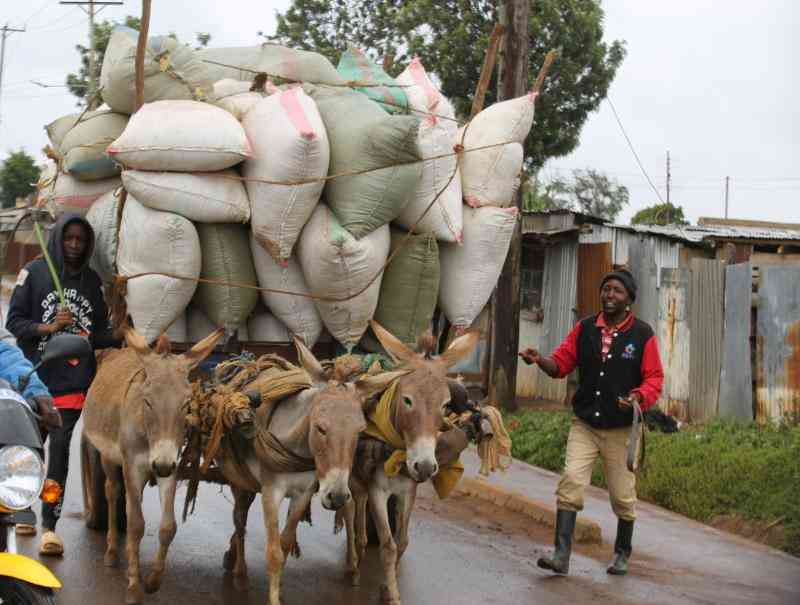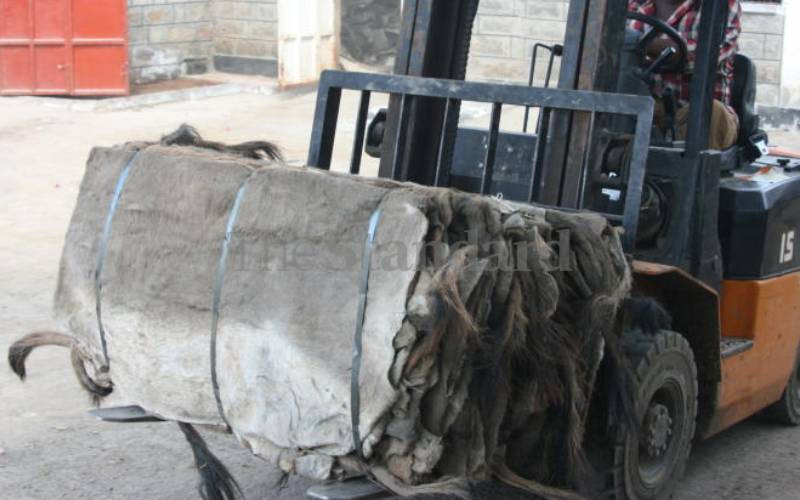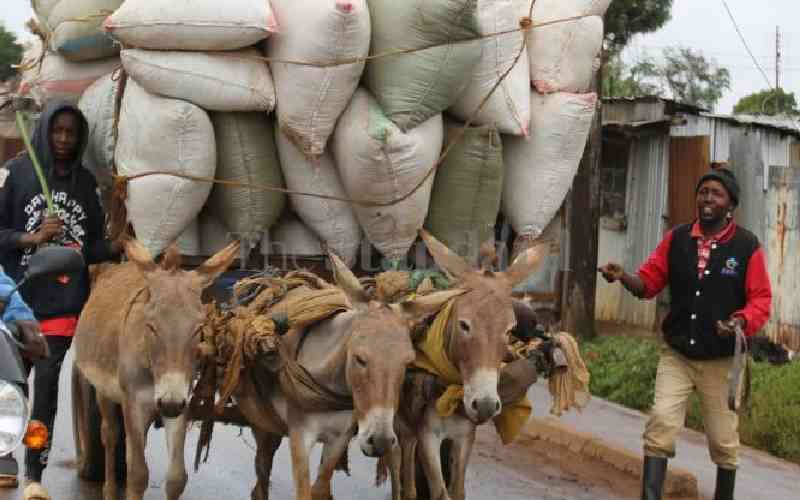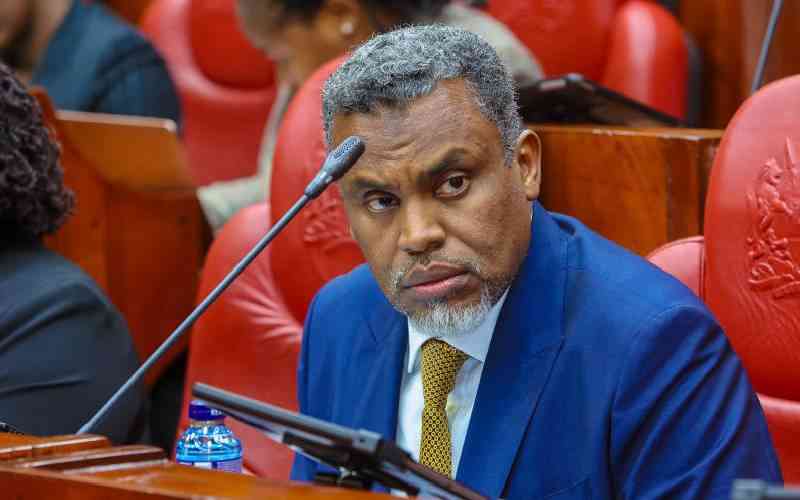
NAIROBI, KENYA: Animal rights activists have sounded a warning that the current massive slaughter of donkeys across the country will greatly hurt the economy in rural, arid and semi-arid areas.
The current massive slaughter of donkeys to meet China's high demand of donkey meat and skins has seen more than 100,000 donkeys slaughtered over the past one year, a situation that has also contributed to theft of donkeys for slaughter crippling economy in rural areas.
"The major mode of transport in rural areas is the donkey, most of the work that includes carrying of luggage including carrying maize, firewood and water for domestic and commercial gains are done by these donkeys, however most of them are sold to fetch 'easy' money," Mr Linus Mwirigi, the Chairman of Tunza Punda organization says.
According to Mwirigi, it is estimated that a donkey contributes Sh200 per day for six days per week to the rural economy amounting to an average of Sh 4, 800 per month or Sh 57, 600 annually.
The rising global trade demand in donkey hides and skins which are used to manufacture an anti-ageing and libido enhancing properties has since given birth to rise in trade for the donkey skin in most African countries-the latest entrant being Kenya.
The damning statistics spiced with low reproduction levels in donkeys globally is a thing to worry about.
According to 2009 statistics, it showed that Kenya had 1.8 Million a number which an organization that fights for the rights of Donkeys, Tunza Punda has currently dropped due to low reproduction and increased butchering.
The situation is fueled by the fact that there is not much concentration of donkey breeding for commercial purposes, a move that could have contributed to the decrease in donkey numbers.
However, Mr Mwirigi says the numbers have drastically reduced as a result of the massive slaughter.
"The numbers are way less than 1.5 million across the country given the fact that most donkeys are being secured by the owners hence denying them time to reproduce.
“The situation has lowered the reproduction rate over the years," he said adding that besides the over 100,000 donkeys which are officially butchered in the slaughter houses across the country, the organization receives not less than 50 calls in a day from people reporting on their lost donkeys or those found to have been killed, and skinned.
He added that the current massive slaughtering of donkeys will impact negatively on the local economy saying that donkeys play a major role in uplifting the standards of living and cutting on costs in rural areas.
Most of those who own donkeys, he said, use them for domestic purposes and rarely own more than one donkey.
To satisfy the demand of donkey products in China, Asia, South America and Africa have been the main target, however, the move has been criticized and it has attracted complete ban on donkey trade in Countries like Burkina Faso,Niger, Mali, Senegal, Gambia, Ethiopia and Zimbabwe.
 The Standard Group Plc is a
multi-media organization with investments in media platforms spanning newspaper
print operations, television, radio broadcasting, digital and online services. The
Standard Group is recognized as a leading multi-media house in Kenya with a key
influence in matters of national and international interest.
The Standard Group Plc is a
multi-media organization with investments in media platforms spanning newspaper
print operations, television, radio broadcasting, digital and online services. The
Standard Group is recognized as a leading multi-media house in Kenya with a key
influence in matters of national and international interest.
 The Standard Group Plc is a
multi-media organization with investments in media platforms spanning newspaper
print operations, television, radio broadcasting, digital and online services. The
Standard Group is recognized as a leading multi-media house in Kenya with a key
influence in matters of national and international interest.
The Standard Group Plc is a
multi-media organization with investments in media platforms spanning newspaper
print operations, television, radio broadcasting, digital and online services. The
Standard Group is recognized as a leading multi-media house in Kenya with a key
influence in matters of national and international interest.










